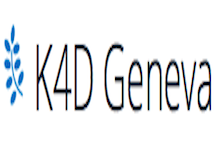A multistakeholder perspective
6 Apr 2017 02:00h
Event report
Session 5 of the Knowledge for Development conference, focused on the multistakeholder perspectives to knowledge management and the approaches to knowledge management that multistakeholder institutions are currently using and implementing. Some of the main themes discussed included the challenges that each institution is facing in knowledge management, and how their knowledge management plans are developing.
Ms Yordanka Fandakova, Mayor of Sofia, Bulgaria, planned to be present at the conference but due to the recent elections in Bulgaria, she was unable to make it. She sent a statement which included information about her future plans in knowledge management for Sofia. She expressed her belief that knowledge is fundamental for continuous progress in the future and also stated that the Bulgarian government is supporting initiatives to transform Sofia into a modern European city. They have also established a cluster, ‘Sofia – Knowledge City’ to develop solid management commitment in the city.
Mr Stephan Mergenthaler, Head of Knowledge Networks and Analysis at the World Economic Forum, reflected on a lot of the discussions from the conference’s first day. He spoke about what he sees as the three main shifts when looking at knowledge management through a multistakeholder approach. The first shift he called ‘from the core to the edges’, which means that we must manage knowledge in order to understand change. He argued that knowledge inherently lives in silos, so in managing we need to think of knowledge as an organism or network, rather than a mechanical thing. The second shift is ‘from organisations to ecosystems’, he spoke about how there is a false dichotomy of internal and external knowledge; there should be no boundary between the two. The third shift is ‘from information scarcity to information overload’. With this last shift Mergenthaler explained that today’s problem is not about managing access to information, but rather the ability to filter out the important information given within the large amounts of information we have.
Dr Jovan Kurbalija, director of DiploFoundation, mentioned the importance of reflecting on the historical precedence of knowledge management in Geneva. He called it the ‘knowledge walk’, where more than 50% of global digital policy is decided within a 5 kilometre radius of the United Nations campus in Geneva. He spoke about the role Geneva plays, and specifically that of DiploFoundation, in binding together the ICT community with the diplomatic community. The issue related to knowledge here is that the prefix we use, determines the policy narratives that are shaped. We must not dismantle silos. They are here to stay and are not necessarily bad because they create trust within a community; however, having borders around the silos that are too high, is an issue. Those who can think beyond the limits of their silos can create real change.
Ms Margot Brown, director, Global Operational Knowledge Management, the World Bank, highlighted 3 main points regarding multistakeholder knowledge management:
- Knowledge management delivers real benefits to an organisation when implemented by understanding the knowledge inputs and outputs.
- Prioritisation is key.
- Focus on tacit knowledge. We tend to focus on explicit knowledge, but it is much harder to tap into discussions, opinions, and feelings that happen within an organisation.
In knowledge management you must get the foundations right in order to build upon it. Brown also discussed the main challenges that the World Bank faces in knowledge management; these are a heavy reliance on technology, and an uncoordinated/fragmented legacy system. She said that the World Bank’s knowledge management plan is under development and that the main focus is making the bank’s knowledge easier to access across the organisation as all operations of the bank align with the knowledge for development values.
Ms Mary Susan Abbo, managing director of CREEC K4D in Uganda, focused on discussing the need to develop beyond just head knowledge, and to do this, she explained the three ways in which the Greek philosophers look at knowledge.
- Head knowledge: from school
- Revelation knowledge: the interaction of physical and spiritual
- Participatory knowledge: all knowledge gained has to be put to use
Abbo stressed that she thinks Uganda needs to be working for sustainability rather than handouts, and to do this she explained a simple approach. The core of this approach is that the demand for knowledge and data should be dealt with from the ‘ground’, while the application of technology must be understood at the ‘grass-roots’ level. Knowledge and trust are essential to the development of Uganda, as knowledge will help make the country more attractive, practical, and sustainable, in order to facilitate innovation and transdisciplinary solutions.
Mr Bedi Amouzou, founder of Knowledge for Development without Borders, was unable to make it to the conference, and a colleague spoke on his behalf via remote-participation (Skype). She explained that the core vision of Knowledge for Development without Borders is to supply and support the sharing of knowledge and information globally. Another core vision is to bring together other professionals and organisations, and to focus on skills for development training for marginalised countries in need, by providing them access to information and data collection for development.
Related topics
Related event

Knowledge for Development: Global Partnership Conference 2017
3 Apr 2017 02:00h - 4 Apr 2017 02:00h
Geneva, Switzerland
